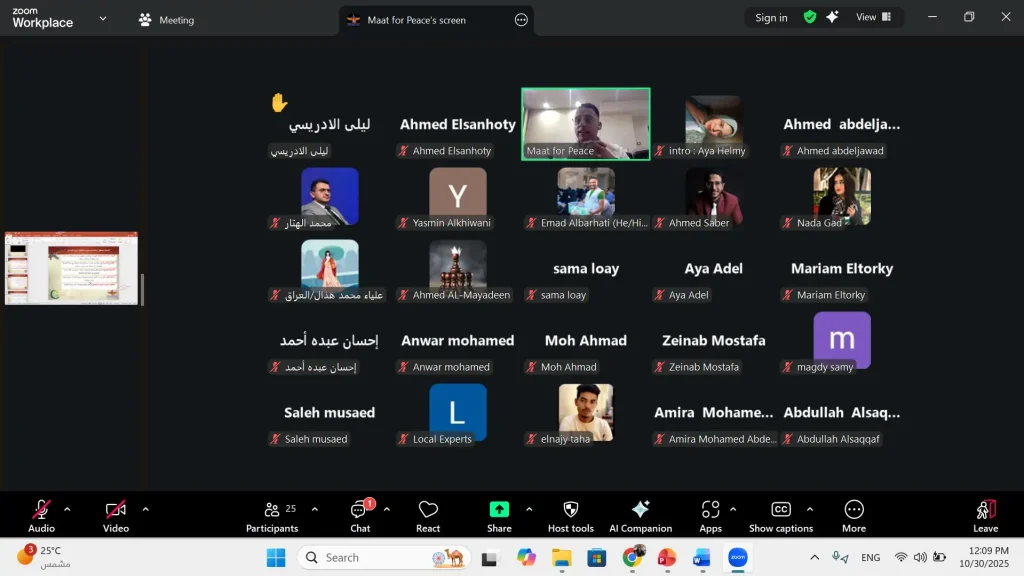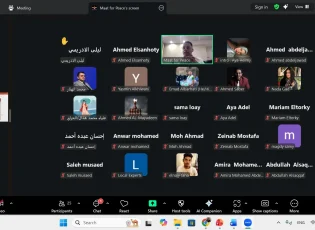The ruler is not the one who sits on the chair, but the ruler is the one who manages matters and is responsible for the movement of life, for the woman is the ruler in her home and she is the manager of all his affairs and she is the pillar on which the house is based and the foundation of every Egyptian family, so the woman is the origin of every family and her drive towards progress or towards delay. Awareness and awareness are all that Egyptian women need in Kerdasa by virtue of their rural upbringing in which they were brought up, which may have deprived them of opportunities for knowledge and training. The traditional religious discourse that prevailed for long periods may have contributed to the denial of women from exercising a role in public life or having an opinion in the process of making and taking The decision, because the woman was oppressed in her rural community for the sake of the man, and she was bound by his defunct values, which returned negatively to her abilities and weakened her will and confidence in herself. That is why the Maat Foundation for Peace, Development and Human Rights held the ninth discussion session for women and girls within the framework of the project to empower women to rule in the Egyptian village “Wusul” on Monday 21 March 2010 at the headquarters of the Community Development Association in the village of Birk El-Khiam in the Kerdasa center in the 6th of October governorate to raise awareness of the importance of women's participation. In local government. The project is implemented in cooperation between Maat Foundation and the Australian Agency for International Development (AusAID), and seeks to enhance the participation of women in local governance in the Egyptian village, by building the capacity of women to run in local elections, raising awareness of the importance of women's participation in local governance mechanisms and building effective supportive community mechanisms. For the equitable representation of women in local elected popular councils. The participating women discussed more than a basic problem of women's participation at the local level, which is political illiteracy and lack of education and education. Many of them are illiterate and miss awareness programs, whether they are literacy educational programs or even awareness programs on political rights in addition to the problem of negative participation by refraining from participating in casting their votes in elections or Participate in it. The participants tried hard to put forward a number of solutions to take advantage of the current stage and the gains achieved by the January 25 revolution, which is considered an "open paragraph for what the Egyptians demand", among them the women who demanded to hold educational seminars for women in the villages mainly and to make them aware of the importance of their political participation and their electoral rights in conjunction with holding educational seminars For men about the importance of women's participation because men are the fathers, husbands and brothers of those women who may be an important obstacle to their participation and their exit to the practice of public work. Some of the participants raised a very important topic and issue, which is choosing candidates based on their electoral programs and monitoring their implementation, in addition to developing volunteer work among young women in the rural community to motivate them to participate from their childhood and to ensure their involvement in public work. This requires a change in the traditional religious discourse in Egyptian society, which reduces The ability of women and increases their isolation within their families and their reluctance to participate. Some of the participants in the seminar agreed with the project team to hold a specialized training workshop for rural women leaders on political participation and education for elections for these rural women, as they are the most groups dealing with rural women in Kerdasa community.
shortlink: https://maatpeace.org/en/?p=30552












